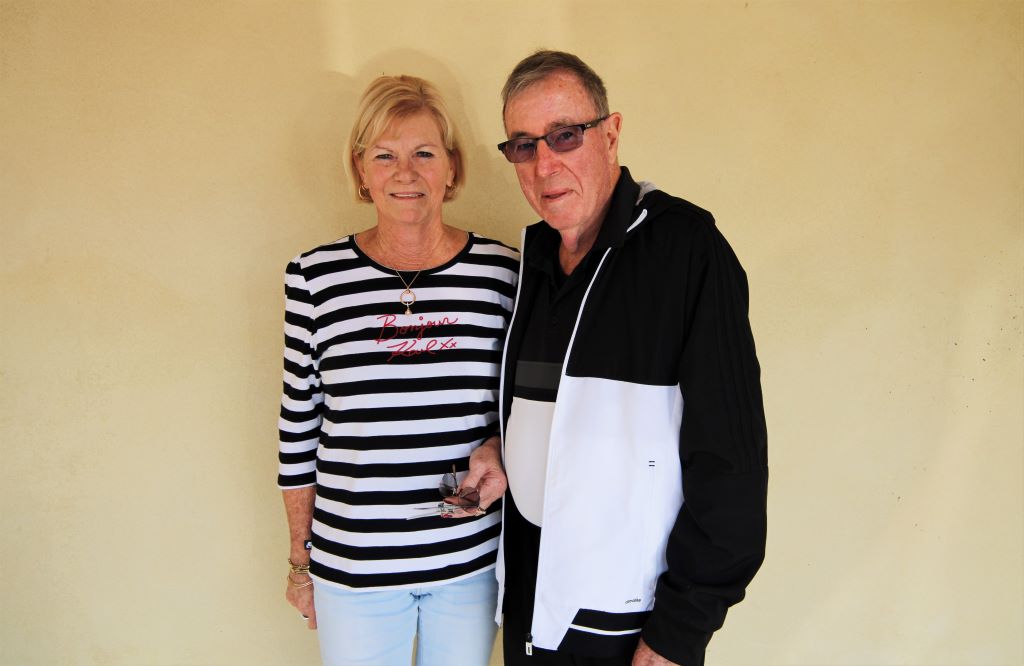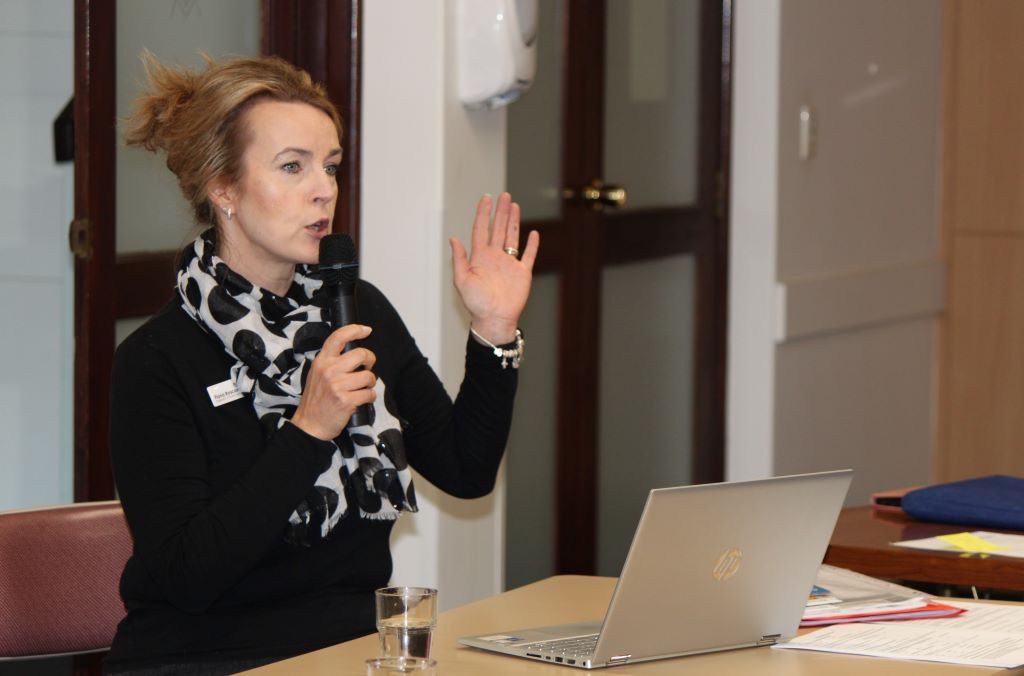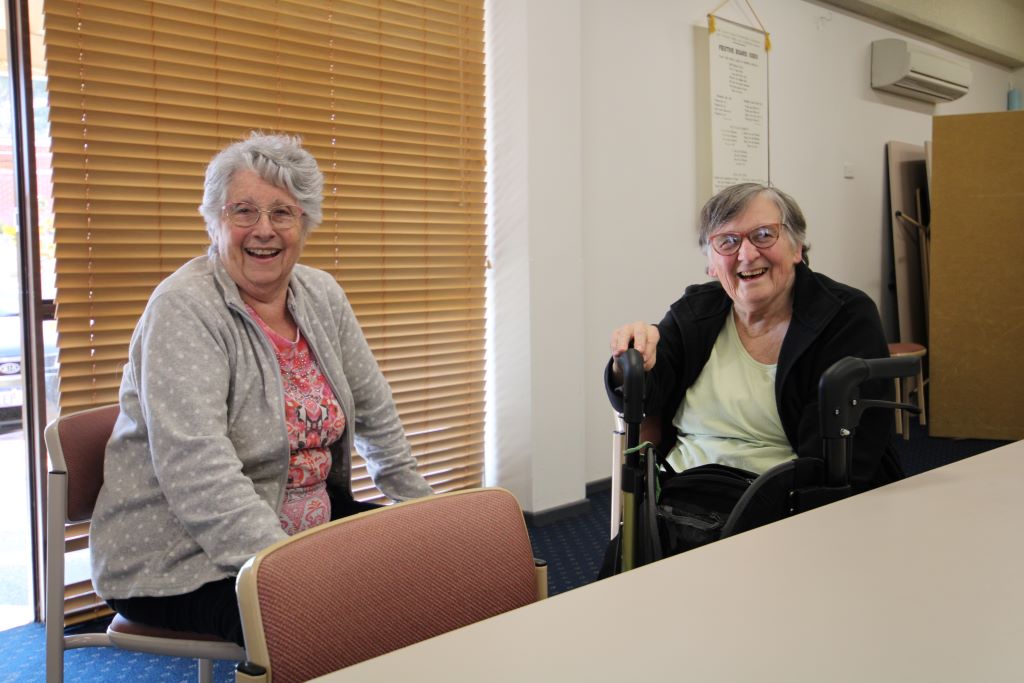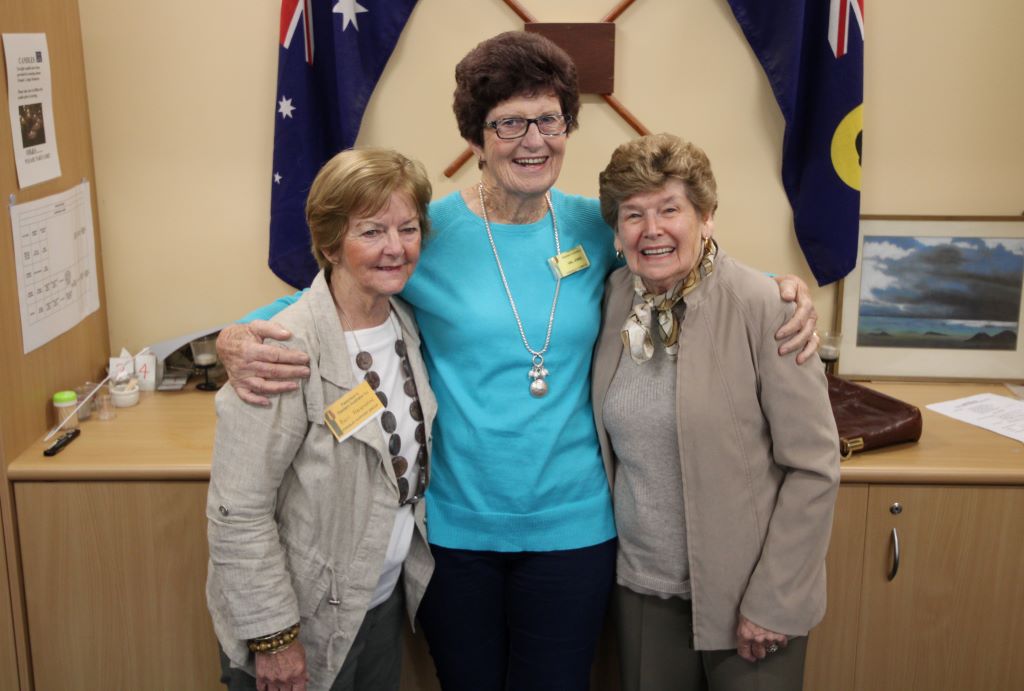Parkinson’s WA promote the benefit of members attending a support group across WA and most of the groups meet once each month in geographically widespread locations, depending on the area they live in. There are 17 groups across WA, including six regional and 11 metropolitan, across south, east, west and north. One group that has been operating successfully over the years is the Kingsley group, where we met with some of the members to hear their stories.
 Pictured: Kingsley Support Group members, Trish and Richard
Pictured: Kingsley Support Group members, Trish and Richard
Trish from the Parkinson’s WA Kingsley Support Group told us that life changed with Parkinson’s, and it helped to talk about it.
“The community support one another. We come together and talk about the condition and how our lives have changed. We understand each other and that makes all the difference,” she said.
Trish is connected to the Parkinson’s community through her husband Richard, and they have been attending the Kingsley Support Group for a few years following his diagnosis.
“I heard about the group through coffee with friends and it has been a great opportunity to listen to other people’s stories and hear about their life,” she said.
“You have to always listen, because whatever you hear may not impact you at that time, but you can pass it on, or store it away for when that information is relevant to your Parkinson’s journey.”
Trish said the Parkinson’s had impacted the way her and her husband now socialised but had found connection in Kingsley.
“We don’t socialise in the same groups and circles, because people don’t understand the path we are now walking. At Kingsley, we all support one another and see each other at the various stages of the condition, and that bond matters at this point in our lives,” she said.
Parkinson’s Nurse Specialist (PNS) Fiona covers the North Metro area and recently visited the Kingsley Group, delivering a presentation on sleep.
 Pictured: PNS Fiona presents at the group
Pictured: PNS Fiona presents at the group
Trish said Fiona was a wonderful asset to the community and she was grateful to know she had the PNS service supporting them.
“Fiona has been helpful, knowledgeable and caring and it’s great knowing I can always speak to her if I need a question answered about Richard’s condition and care,” she said, graciously.
“Fiona has a lot of things to tell us about Parkinson’s, and that information always relates to what is currently going on with Richard.”
Long-time member and Parkinson’s WA supporter Jean said she loved coming to the group and connecting with other people.
“We can talk about the things that worry us – things we can’t talk about with other people who don’t understand Parkinson’s,” she said.
“Nobody’s symptoms are the same, so we can be open and feel understood at the group.”
Jean has been attending the Kingsley group for seven years and she said she has developed life-long friends.
 Pictured: Two group members smile as they chat together
Pictured: Two group members smile as they chat together
“The friendships and community have developed over time, and it’s been wonderful to be a part of it,” she said joyfully.
“It’s a good feel overall at Parkinson’s WA and we can see that they are more for others than themselves, and the nursing service is no exception.”
“They have so much knowledge, so much guidance to offer. They are so perceptive and always have time for me.”
“Parkinson’s WA has done great work, and I want it to continue to grow and offer a lifeline to people diagnosed with Parkinson’s in the community.”
Kingsley Support Group Leader Bev said value of life became paramount to their family after her husband Jeff was diagnosed with Parkinson’s in 2005.
“Life is much slower, more thoughtful and we are more mindful in what we do each day,” she explained.
Bev said Fiona and the PNS service had been of great value to their family.
“The Nurse Specialists have always been available at the end of the phone as we need, and the home visits are greatly beneficial in a one-on-one situation,” she said.
“The Kingsley group is a wonderful friendly group, and many of the attendees have forged great friendships.”
“We need to be able to connect with others in the same situation, and it helps immensely to bounce off each other’s problems - although not medically trained, experience with partners of those living with Parkinson’s have a great wealth.”
PNS and the groups
The PNS make themselves available to visit with the Support Groups in their area once a year, as previously arranged with Support Group Leaders. As part of this arranged visit, the Nurses present an informative session to the group and spend some time speaking to the attendees and answering any questions they may have.
 Pictured: The Kingsley group women gather together
Pictured: The Kingsley group women gather together
Learning to live with Parkinson’s is not easy.
Arising from the main symptoms of tremor, muscle rigidity and slowness of movement are many problems of daily living. Often small problems become frustrating ones, such as difficulty doing up small buttons, combing one’s hair or turning over in bed.
People with Parkinson’s may be able to do some things well at times and be completely incapable of the same task at other times.
Because learning to live with Parkinson’s is challenging, many people gain much needed support from being in contact with others who understand. For many, a Support Group reduces the feeling of isolation and creates an opportunity for frank discussion of symptoms, problems and reactions to medication.
A Support Group can also offer information in the form of Guest Speakers and can connect you with local services to help you cope better. By sharing ideas and information with others, many people are able to find new ways of coping. Most people who attend feel that the emotional support they both give and receive is of great benefit.
Benefits of belonging to a support group:
- Learning ways of coping with Parkinson’s
- Meeting new friends
- Being heard by people who understand
- Knowing that you are not alone
- Having fun
- Connecting with local support services
Please phone the office on (08) 6457 7373 or email info@parkinsonswa.org.au for details of a Support Group near you, or alternatively visit our website for more information.
Words and pictures by Jacqui O'Leary
Find out more about our Support Groups here.